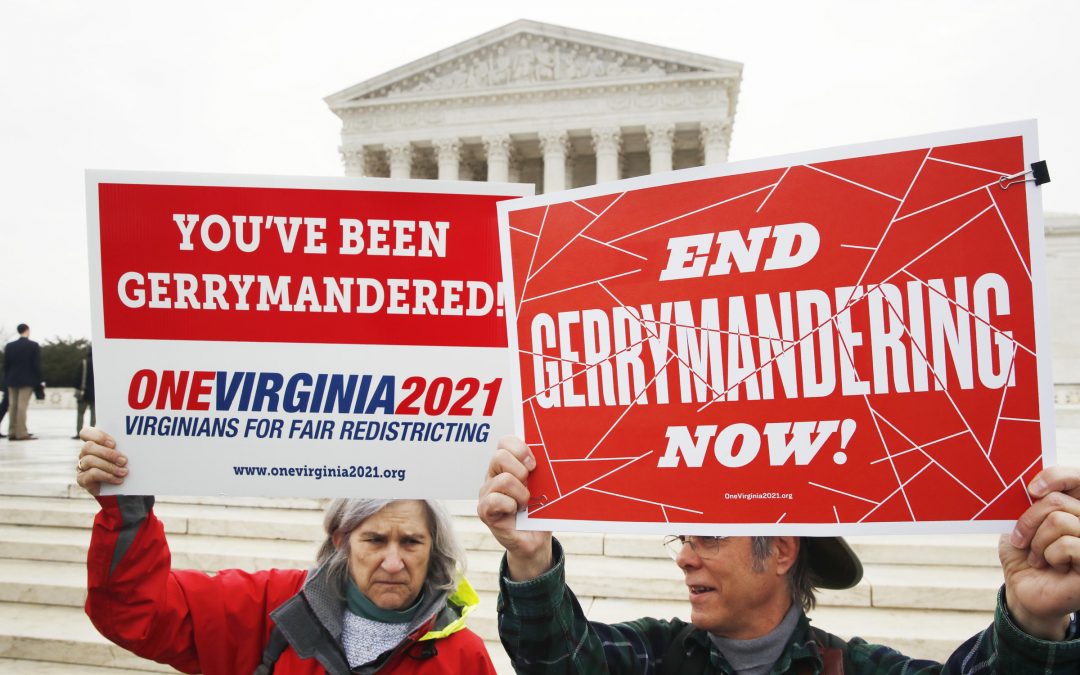The Supreme Court has ruled against the Virginia House of Delegates in a racial gerrymandering case that represents a victory for Democrats in the state.
In the 5-4 ruling, the justices found that the House didn’t have the standing to appeal a lower court ruling that found that the new district maps must be used ahead of statewide elections later this year.
Those new maps are already in use.
Democrats had claimed that previous districts were unlawful because they featured too many black voters, diminishing their power across the state and in other districts.
Justice Ruth Bader Ginsburg wrote the majority opinion and was joined by Justices Clarence Thomas, Sonia Sotomayor, Elena Kagan and Neil Gorsuch.
Justices Samuel Alito, John Roberts, Stephen Breyer and Brett Kavanaugh dissented.
Virginia Democrats had challenged the 11 districts for the state’s House of Delegates, which were drawn after the 2010 census, and each have a population with at least 55 percent black residents of voting age.
The Supreme Court has previously held that race can’t be the leading factor in the creation of state districts.
The justices first took on the case in 2015, but sent it back down to a lower court for reconsideration.
But lawyers for the GOP-held House of Delegates claimed that by making sure that each legislative district had 55 percent black voters, the state was ensuring that their voting power wasn’t diminished.
Virginia House Democrats celebrated the ruling in a statement today, calling it “a major win for voting rights and civil rights in our Commonwealth.”
“House Republicans have spent millions of taxpayer dollars defending racial gerrymandering in a protracted legal battle – a battle in which they lacked legal standing,” House Democratic Leader Eileen Filler-Corn and Caucus Chairwoman Charniele Herring said in a joint statement.
“Finally, Virginians in the affected districts have the assurance that they will vote in constitutional districts in this year’s election.”
Virginia Attorney General Mark Herring (D) said in a statement that it is “unfortunate that House Republicans wasted millions of taxpayer dollars and months of litigation in a futile effort to protect racially gerrymandered districts.”
“[B]ut the good news is that this fall’s elections will take place in constitutionally drawn districts,” he added.
The House had argued that it was able to argue in court on behalf of the state’s interests.
But the majority found that the lawmakers hadn’t identified a legal basis for them to do so, and that Virginia law gives the authority and responsibility to represent the state in court “exclusively” to the attorney general.
And Ginsburg’s opinion also finds that the House wouldn’t be injured by allowing the district maps to stand, as state law says that the entire Virginia General Assembly, not just the House, is elected from the districts that it draws.
However, Alito wrote in the dissenting opinion that “the new districting plan ordered by the lower court will harm the House in a very fundamental way.”
And he pushed back against the claim that the districts won’t necessarily hurt the House itself because members of the legislature frequently change.
“Really? It seems obvious that any group consisting of members who must work together to achieve the group’s aims has a keen interest in the identity of its members, and it follows that the group also has a strong interest in how its members are selected,” Alito wrote. “And what is more important to such a group than the content of its work?”
